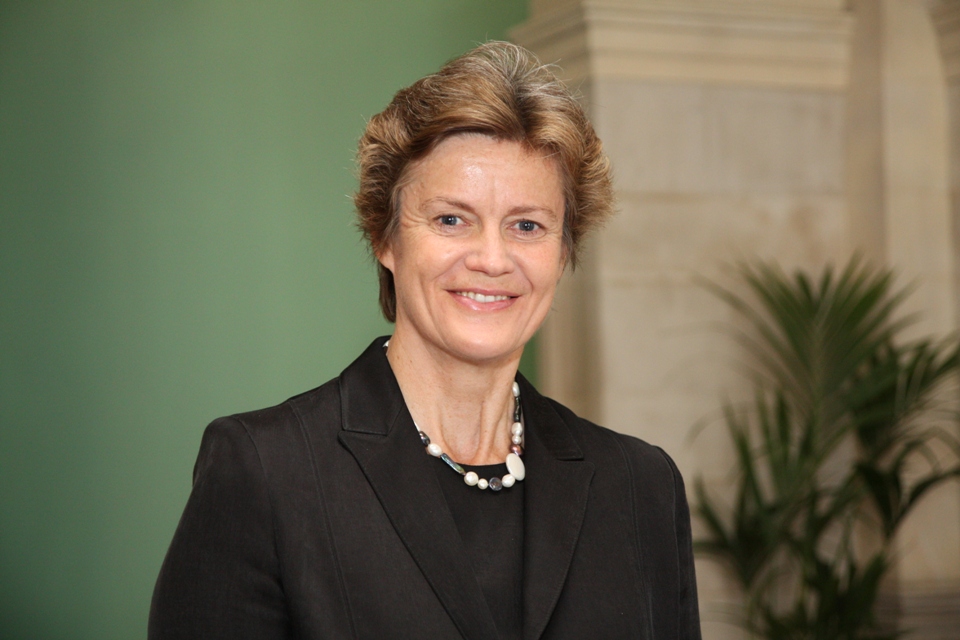Peacebuilding financing remains a critical challenge
Statement delivered by Ambassador Barbara Woodward as President of the Security Council at the High-Level Meeting on Financing for Peacebuilding

Mr. President, Excellencies, Distinguished delegates,
It is my honour to address you today on the behalf of the Security Council.
As set out in the UN Charter, over 75 years ago, the United Nations was established ‘to save succeeding generations from the scourge of war’. Our purpose is to ‘take effective collective measures for the prevention and removal of threats to the peace.’
The prevention of violent conflict, peacebuilding and sustaining peace are central to these objectives and our work. But, as the Security Council and the General Assembly both recognised in 2016, effective peacebuilding must involve the entire UN system.
In his January 2022 report on Peacebuilding and Sustaining Peace, the Secretary-General highlighted that ‘the falling trend of fatalities from armed conflict since the 2014 peak, was reversed in 2020.’
Last year, UN humanitarian appeals reached a record $39 billion. Peacekeeping cost $6 billion. The World Bank estimates that the economic impact of violent conflict is $13.6 trillion a year and that conflict drives 80% of humanitarian needs.
Peacebuilding is the most cost-effective approach to protecting development gains to achieve the Sustainable Development Goals.
Yet, peacebuilding remains under-financed.
The Secretary-General’s Peacebuilding Fund is uniquely positioned to support the achievement of the founding principles of the UN. It can act as a catalyst, along with ongoing bilateral efforts, for comprehensive peacebuilding programming in specific contexts that are not adequately served by other funding sources, including in transition settings.
In the twin resolutions adopted by the General Assembly and the Security Council concluding the 2020 review of the United Nations peacebuilding architecture, Member States noted that peacebuilding financing remains a critical challenge, and decided to convene this High-Level Meeting.
Some progress has been made to resource peacebuilding more effectively, but more is needed to strengthen concerted UN peacebuilding assistance. Here, support to nationally-owned approaches to conflict prevention remains vital.
Peacebuilding requires a broad set of financing instruments and a variety of channels and sources, while adhering to appropriate norms of accountability and transparency.
The Secretary-General has encouraged Member States to explore several means of financing peacebuilding activities, including through public-private partnerships. He has also encouraged strengthened partnerships, including with regional and sub-regional organisations, International Financial Institutions, and civil society.
I recognise the essential role of the Peacebuilding Commission and the Peacebuilding Support Office, as critical parts of how the UN can more effectively support peacebuilding. I welcome the most recent letter of the PBC encouraging us to ensure adequate, predictable and sustained financing for comprehensive and inclusive approaches to peacebuilding and sustaining peace.
The General Assembly may consider a range of options in this High-Level Meeting to address the resource challenges in peacebuilding, and I encourage an action-oriented outcome in this regard.
Thank you.